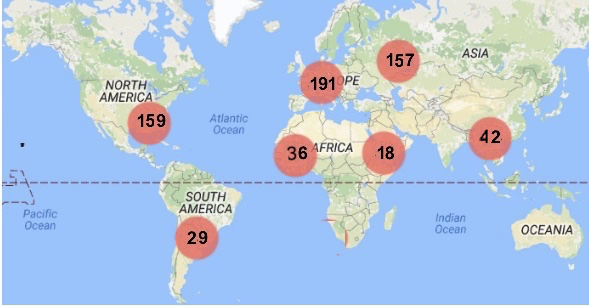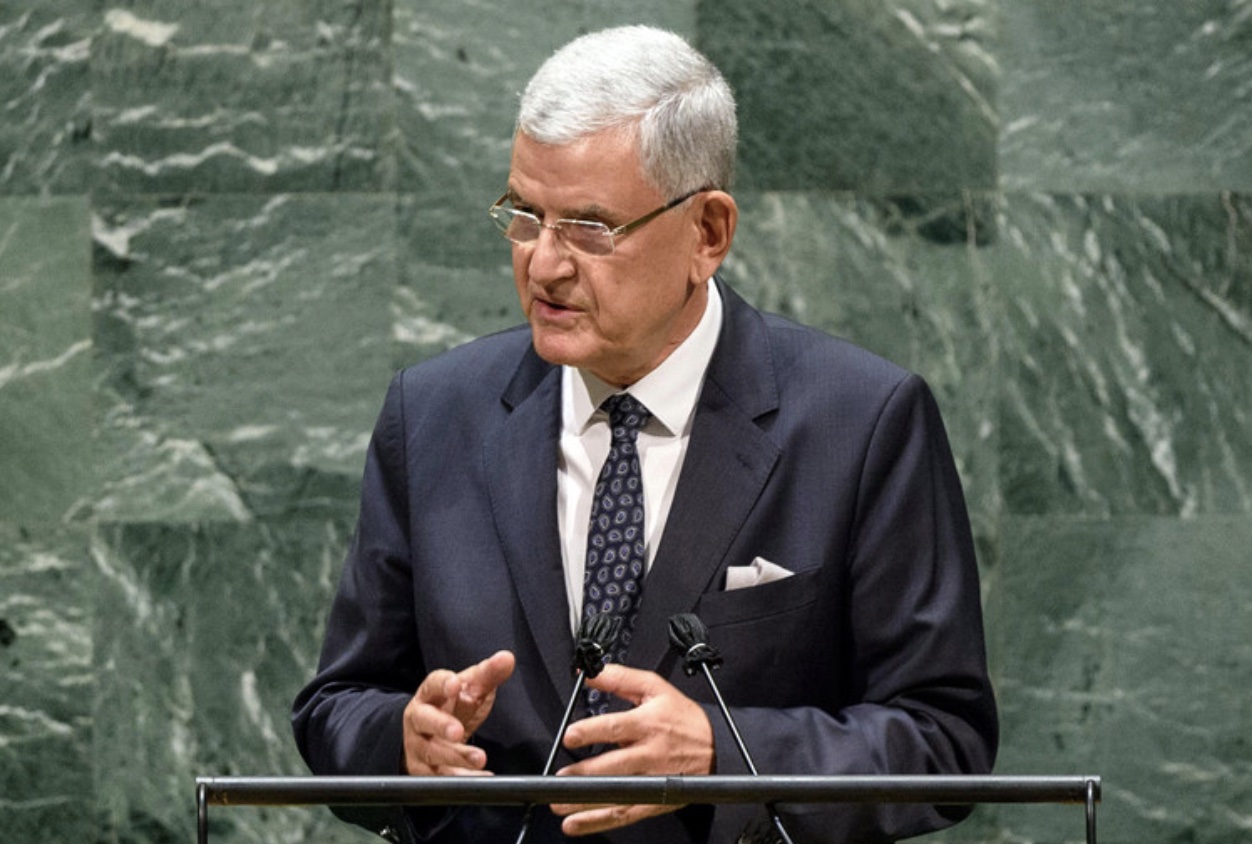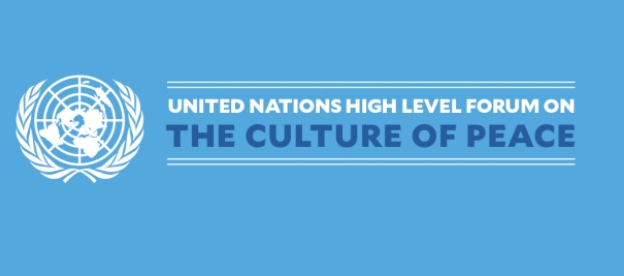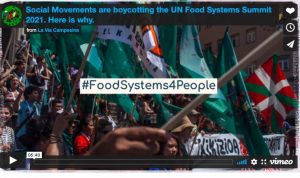FREE FLOW OF INFORMATION
An article by Anwarul Chowdhury in IDN-InDepth News (published under Creative Commons Attribution 4.0 International)
Following is the text of Inaugural Keynote Address by Ambassador Anwarul K. Chowdhury, former Under-Secretary-General and High Representative of the United Nations and Founder of The Global Movement for The Culture of Peace (GMCoP), at the First Annual Peace Education Day Conference organized virtually by The Unity Foundation and Peace Education Network.

Photo: UN Blue Helmets. Credit: United Nations
I thank Bill McCarthy, President and Founder of the Unity Foundation and Chair of this first annual Peace Education Day Conference and the Peace Education Network for organizing the conference with the excellent objective of getting the UN to declare an International Peace Education Day. I believe it would be better if it is called the Global Peace Education Day.
I am honored to be invited to speak at the conference as the inaugural keynote speaker on a subject which is very close to my heart and my persona.
As I have stated on many occasions, my life’s experience has taught me to value peace and equality as the essential components of our existence. Those unleash the positive forces of good that are so needed for human progress.
Peace is integral to human existence—in everything we do, in everything we say and in every thought we have, there is a place for peace. We should not isolate peace as something separate or distant. It is important to realize that the absence of peace takes away the opportunities that we need to better ourselves, to prepare ourselves, to empower ourselves to face the challenges of our lives, individually and collectively.
For two decades and half, my focus has been on advancing the culture of peace which aims at making peace and non-violence a part of our own self, our own personality—a part of our existence as a human being. And this will empower ourselves to contribute more effectively to bring inner as well as outer peace.
This is the core of the self-transformational dimension of my advocacy around the globe and for all ages, with special emphasis on women, youth and children. This realization has now become more pertinent in the midst of the ever-increasing militarism and militarization that is destroying both our planet and our people.
The International Congress on Peace in the Minds of Men was held in Yamoussoukro, Côte d’Ivoire/Ivory Coast in 1989 organized by UNESCO under the wise and dynamic leadership of my dear friend Federico Mayor Zaragoza, then UNESCO Director-General who is joining this conference also as a keynote speaker. It was a landmark gathering to give a boost and a profile to the concept of the culture of peace aimed at promoting a change of values and behaviors.
On 13 September 1999, 22 years ago last week, the United Nations adopted the Declaration and Programme of Action on the Culture of Peace, a monumental document that transcends boundaries, cultures, societies and nations.
It was an honor for me to Chair the nine-month long negotiations that led to the adoption of this historic norm-setting document by the United Nations General Assembly. That document asserts that inherent in the culture of peace is a set of values, modes of behaviour and ways of life.
A significant aspect of the essential message as articulated in the UN documents effectively asserts that the “culture of peace is a process of individual, collective and institutional transformation …” ‘Transformation’ is of the key relevance here.
It is basic to remember that the culture of peace requires a change of our hearts, change of our mindset. It can be internalized through simple ways of living, changing of our own behavior, changing how we relate to each other, changing how we connect with the oneness of humanity. The essence of the culture of peace is its message of inclusiveness and of global solidarity.
The 2030 Agenda for Sustainable Development of the United Nations in its sustainable development goal (SDGs) number 4.7 includes, among others, promotion of culture of peace and non-violence as well as global citizenship as part of the knowledge and skills needed to promote sustainable development.
It also calls on the international community to ensure that all learners acquire those by the year 2030. Keeping that in focus, the theme of the UN High Level Forum in 2019 observing the 20th anniversary of the culture of peace at the UN was “The Culture of Peace—Empowering and Transforming the Humanity” aiming at a forward-looking and inspiring agenda for the next twenty years.
(continued in right column)
What is the United Nations doing for a culture of peace?
(continued from left column)
In my introduction to the 2008 publication “Peace Education: A Pathway to a Culture of Peace”, I wrote, “As Maria Montessori had articulated so appropriately, those who want a violent way of living, prepare young people for that; but those, who want peace have neglected their young children and adolescents and that way are unable to organize them for peace.”
In UNICEF, peace education is very succinctly defined as “the process of promoting the knowledge, skills, attitudes and values needed to bring about behavior change that will enable children, youth and adults to prevent conflict and violence, both overt and structural; to resolve conflict peacefully; and to create the conditions conducive to peace, whether at an interpersonal, intergroup, national or international levels”.
Peace education needs to be accepted in all parts of the world, in all societies and countries as an essential element in creating the culture of peace. It deserves a radically different education—“one that does not glorify war but educates for peace, non-violence and international cooperation.” They need the skills and knowledge to create and nurture peace for their individual selves as well as for the world they belong to.
Never has it been more important for us to learn about the world and understand its diversity. The task of educating children and young people to find non-aggressive means to relate with one another is of primary importance.
All educational institutions need to offer opportunities that prepare the students not only to live fulfilling lives but also to be responsible, conscious and productive citizens of the world. For that, educators need to introduce holistic and empowering curricula that cultivate a culture of peace in each and every young mind.
Indeed, this should be more appropriately called “education for global citizenship”. Such learning cannot be achieved without well-intentioned, sustained, and systematic peace education that leads the way to the culture of peace.
If our minds could be likened to a computer, then education provides the software with which to “reboot” our priorities and actions away from violence, towards the culture of peace. The Global Campaign for Peace Education has continued to contribute in a meaningful way towards this objective and must receive our continuous support.
For this, I believe that early childhood affords a unique opportunity for us to sow the seeds of transition from the culture of war to the culture of peace. The events that a child experiences early in life, the education that this child receives, and the community activities and socio-cultural mindset in which a child is immersed all contribute to how values, attitudes, traditions, modes of behavior, and ways of life develop.
We need to use this window of opportunity to instill the rudiments that each individual needs to become agents of peace and non-violence from an early life.
Connecting the role of individuals to broader global objectives, Dr. Martin Luther King Junior affirmed that “An individual has not started living until he can rise above the narrow confines of his individualistic concerns to the broader concerns of all humanity.” The UN Programme of Action on the Culture of Peace pays special attention to this aspect of an individual’s self-transformation.
In this context, I would reiterate that women in particular have a major role to play in promoting the culture of peace in our violence-ridden societies, thereby bringing in lasting peace and reconciliation. Women’s equality makes our planet safe and secure. It is my strong belief that unless women are engaged in advancing the culture of peace at equal levels with men, sustainable peace would continue to elude us.
We should always remember that without peace, development is impossible, and without development, peace is not achievable, but without women, neither peace nor development is conceivable.
The work for peace is a continuous process and I am convinced that culture of peace is absolutely the most essential vehicle for realizing the goals and objectives of the United Nations in the twenty-first century.
Let me conclude by urging all of you most earnestly that we need to encourage the young people to be themselves, to build their own character, their own personality, which is embedded with understanding, tolerance and respect for diversity and in solidarity with rest of humanity.
We need to convey that to the young people. This is the minimum we can do as adults. We should do everything to empower them in the real sense, and such empowerment is going to stay with them for life. That is the significance of the Culture of Peace. It is not something temporary like resolving a conflict in one area or between communities without transforming and empowering people to sustain peace.
Let us—yes, all of us—embrace the culture of peace for the good of humanity, for the sustainability of our planet and for making our world a better place to live.


 UN Photo/Loey Felipe
UN Photo/Loey Felipe




